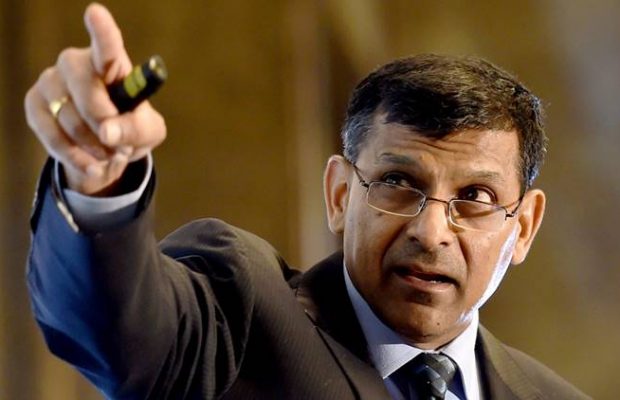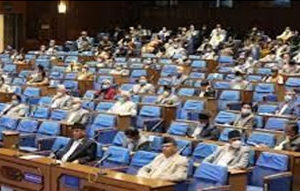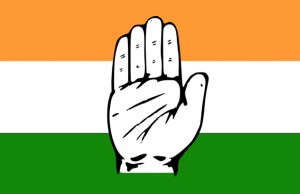RSS ensured ‘James Bond’ goes back
By Pankaj Sharma on June 25, 2016
Most of the economists, corporate bigwigs and renowned professional of financial world, including the chief executives of government owned banks, have openly said that Reserve Bank of India (RBI) Governor Raghuram Rajan’s going back to his old academic world is a great loss for the country. But when it comes to putting the foot down by Rashtriya Swayam Sevak Sangh (RSS) Prime Minister Narendra Modi has no other option than to obey. For RSS toeing the line of its political ideology is more important than putting the economy of India on track. Therefore all the ‘Rajans’ who will dare to express their views on issues such as ‘intolerance’ will have to return to their’ ultimate home of realm of ideas’.
It was clear that Rajan is counting his days when Modi chose not to react on Subramanian Swamy when he called the policies initiated by Rajan as ‘anti-national in intent’. He had written to Modi to demand that Rajan be sacked as he is not ‘fully mentally Indian’ and had been sending confidential and sensitive financial information around the world. It was shocking to see the silent endorsement of Modi-government to the views of Swamy that suggest that for past three years India’s central bank was working against the interests of the country. Everyone knows that there were difference of opinion between Rajan and the finance ministry bureaucracy on the RBI’s monetary policy particularly on the issue of the Reserve Bank’s refusal to lower interest rates.
Rajan’s obstinacy in not reducing interest rates was creating unrest in the minds of real estate developers for a long time. They argued that it is blocking the growth in employment generation. It was also deeply resented in RSS circles that Rajan had backers such as former finance minister P Chidambaram and Infosys co-founder N R Narayana Murthy. Both had gone on record asking for a second term for Rajan. RSS is feeling relived after Rajan’s departure from the RBI and its ideologues are terming it as an ‘end to outside interference’ in policy making. I feel it is time for Swamy to make public the ‘sensitive information’ Rajan was sending out for all these years.
Several prestigious institutions across the world have rated Rajan one of the best central bank chiefs. He is perhaps the most famous and important economist of our times. Even stalwarts such as Amartya Sen feel that losing Rajan is a national loss to India. At 40, Rajan was the youngest to be appointed as the chief economist of the International Monetary Fund in 2003. At the risk of getting marked as a ‘Luddite,’ Rajan boldly predicted in 2005 that the world was headed for an unprecedented global credit crisis, led by an asset price bubble in the US housing market. Former US Treasury Secretary Lawrence Summers and the US Federal Reserve chairman Alan Greenspan tried to ridicule him for saying it, but Rajan proved unbelievably right. The crisis unfolded exactly as he had predicted.
RSS and Modi-government might find it surprising that Indian media is calling 53-year-old Reserve Bank of India governor ‘James Bond’ of the financial world and receiving the kind of plaudits. But they must remember that most of the financial experts were vouching for Rajan’s abilities when in August 2012, when he was called to India by the then prime minister Manmohan Singh to become the chief economic advisor. It is because of the trust in his fundamental abilities that Rajan was made to eventually succeed D Subbarao as the 23rd governor of RBI on September 4, 2013.
Rajan took steps to stem the rapid fall of the rupee and announced a series of measures. He stabilised the rapidly falling rupee, brought down a tight lid on runaway inflation, cleaned up bank balance sheets and introduced schemes that were harsh on crony capitalists who until then had taken the banking channel for granted.
There were efforts to create an atmosphere of fear by spreading rumours that banks would go comatose by the harsh bad debt clean up measures, but even with record bad losses declared, bank stocks rose, indicating that the market was reasonably supportive of the measures RBI has been taking. Bankers are unanimous in their assessment that these harsh measures were well overdue and skillfully executed.
An inflation warrior, Rajan tried the price rises to stop within a reasonable limit. For this he stick to a higher interest rate so that demand is dampened. A low inflation environment ultimately benefits all but in the process Rajan made powerful enemies who were of the opinion that India’s road to 10 per cent growth rate was hindered by Rajan’s reluctance to lower interest rates. Those who want the people to buy their dream of double digit growth forget the fact that most of Modi-government policies have contributed to a negative growth in all major sectors. It is hard to swoloow the truth but Rajan was no wrong when he labeled India a ‘one eyed king in the land of blinds’ as far as the health of economy is concerned. Pointing at the cloths of the emperor is Rajan’s only crime.
While Rajan is now all set to leave, RBI’s credibility and autonomy is in serious jeopardy. At a time when global economy is swaying very fast into uncertain territories and domestic prices are almost certain to rise, absence of ‘Rajan style of functioning’ at RBI in days to come could cost the country heavily. If the reports of withdrawal of foreign investments from India because of uncertain economic environment are true, the difficulties are bound to increase.
We must understand that human rights are not only violated by terrorism and repression but also by unfair economic structures. Economic depression cannot be cured only by legislative actions or executive pronouncements. Economic wounds can be healed by the action of the cells of the economic body and RBI is an important regulator of this body. Handing it over to the favorites of RSS will not be ‘nationalist in intent’.
Author is Editor and CEO of News Views India.
SPONSORED
-
Recent Posts
Recent Comments
Archives
- August 2024
- July 2020
- February 2018
- January 2018
- December 2017
- November 2017
- October 2017
- September 2017
- August 2017
- July 2017
- May 2017
- April 2017
- March 2017
- February 2017
- January 2017
- December 2016
- November 2016
- October 2016
- September 2016
- August 2016
- July 2016
- June 2016
- April 2016
- March 2016
- February 2016
- January 2016
- December 2015
- November 2015
- October 2015
- September 2015
- August 2015
Copyright © 2015 Global India Investigator | GII Portal Powered by Designage Works




You must be logged in to post a comment Login